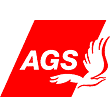Wages and Benefits

Average Wage
Wages in Canada vary according to industry, qualifications, profession, and geographic area.
As of this writing, the average wage in Canada is $896.63/week. However, this varies from province to province. In Alberta the average weekly wage is $1,066.83, while in Nova Scotia the average weekly wage is $785.99.
The average forestry industry wage is $923/week. The average mining, oil and gas industry wage in Canada is $1,735/week. Employees working in manufacturing earn $962/week on average. Financial and insurance sector workers make $1,031/week, while managers in Canada earn $1,192/week. Those working in education make $1,023/week, and health care and social assistance workers earn $794/week. Accomodation and food services employees earn on average $365/week, and those employed in the arts, entertainment, and recreation make $514/week.
The average hourly wage of a sales clerk in Canada is $12, $25/hour for an electrician, $40/hour for a lawyer, and $70/hour for a dentist.
The Government of Canada’s Working in Canada Department allows you to compare wages and outlooks for similar jobs across Canada by using this interactive tool.
While average salaries in Canada are higher than the US, the UK, and many European countries, this is relative to the high cost of living in Canada.
Minimum Wage
Minimum wages in Canada vary according to province and region:
- Alberta - $9.75/hour
- British Columbia - $10.25/hour
- Manitoba - $10.25/hour
- New Brunswick - $10/hour
- Northwest Territories - $10/hour
- Nova Scotia - $10.15/hour
- Nunavut - $11/hour
- Ontario - $10.25/hour
- Prince Edward Island - $10/hour
- Quebec - $9.90/hour
- Saskatchewan - $9.50/hour
- Yukon - $10.30/hour
Minimum wage is Canada is subject to review and revision on an annual basis, according to inflation and cost of living.
Taxes
On each pay cheque that you receive in Canada, a part of your earnings are deducted to pay taxes. These include income tax, Canadian Pension Plan, Employment Insurance, and possibly other taxable benefits.
Benefits
You Canadian employer may provide you with benefits such as life insurance, health insurance, a private pension plan, etc. A portion of your pay cheque may be deducted for these benefits. Such benefits are taxable.
Canadian Pension Plan
A small part of your pay cheque (approximately 5%) goes into the Canadian Pension Plan (CPP). When you retire, you are eligible to receive a monthly pension from the federal government. The amount will vary based on how many years you worked in Canada before retiring and how much money you made.
Employment Insurance
Canada’s Employment Insurance (EI) provides temporary financial assistance to individuals who lose their jobs through no fault of their own (mass lay offs, seasonal work, etc.) and are available to work but can’t find a job. If you are sick, pregnant, or caring for a newborn or adopted child you may also be eligible for EI.
You are eligible to receive EI payments if you have paid into EI (EI contributions are automatically deducted from your income in Canada). You can apply for EI benefits online or at a Service Canada Centre.
Expats who have obtained a work permit and legal immigration status and who fulfill the requirements are eligible to receive EI.
EI payments are a maximum of $485 per week.
Union Fees
If you are in a union, and the union has an agreement with your employer, some money will be deducted from your pay for union fees.
Worker’s Rights
Most workers in Canada (90%) are protected by provincial employment laws. Federal employment laws protect the other 10%.
Such laws cover rights in areas such as hours of work, overtime pay, minimum wage, pay, vacation time, vacation pay, public holidays, coffee and meal breaks, pregnancy and parental leave, termination notice, and termination pay.
Some of these laws are similar across Canada. For example, a public holiday enables most workers in Canada to have the day off with pay or receive overtime if they work. However, the number of public holidays in Canada varies by province. Worker’s rights also vary by industry and profession. However, all workers in Canada have the right to refuse unsafe work and all provinces and territories must provide for workers compensation benefits if a worker becomes sick or injured on the job.
Employers in Canada cannot refuse to hire workers because of their race, religion, ethnic origin, sex, skin colour, age, martial status, disability, or sexual orientation.
If employers or employees discriminate or make racist or offensive comments, this is called harassment, and is against the law in Canada.
To learn about your rights, contact your provincial Labour Department.
By Jess Gerrow, who traded city life in Canada for island life in the Mediterranean two years ago. She is a postgraduate marketing student, blogger, and freelance writer.
- My Life Abroad -
A selection of expat stories

"A fun compulsive read!"
J. Matcham, Amazon
"I strongly advise people ready to live abroad to read this book!"
Patrice, Amazon


 AGS Worldwide Movers
AGS Worldwide Movers Fexco payment solutions
Fexco payment solutions 1stMove Car Shipping
1stMove Car Shipping